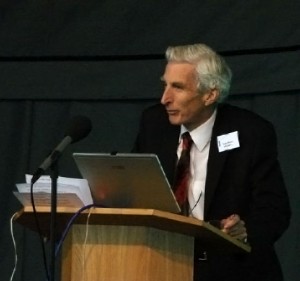Newmark’s Door pointed me to “Ten Questions Science Must Answer,” a cool Guardian article by astronomer Martin Rees, in which he asked scientists to produce the most pressing questions the discipline should be trying to answer. Manchester physicist Brian Cox has an interesting one.
“Can we make a scientific way of thinking all pervasive?
This would be the greatest achievement for science over the coming centuries. I say this because I do not believe that we currently run our world according to evidence-based principles. If we did, we would be investing in an energy Manhattan project to quickly develop and deploy clean energy technologies. We would be investing far larger amounts of our GDP in the eradication of diseases such as malaria, and we would be learning to live and work in space – not as an interesting and extravagant sideline, but as an essential part of our long-term survival strategy.
One only has to look at the so-called controversies in areas such as climate science or the vaccination of our children to see that the rationalist project is far from triumphant at the turn of the 21st century – indeed, it is possible to argue that it is under threat. I believe that we will only be able to build a safer, fairer, more prosperous and more peaceful world when a majority of the population understand the methods of science and accept the guidance offered by an evidence-based investigation of the challenges ahead. Scientific education must therefore be the foundation upon which our future rests.”
Tags: Brian Cox, Martin Rees

